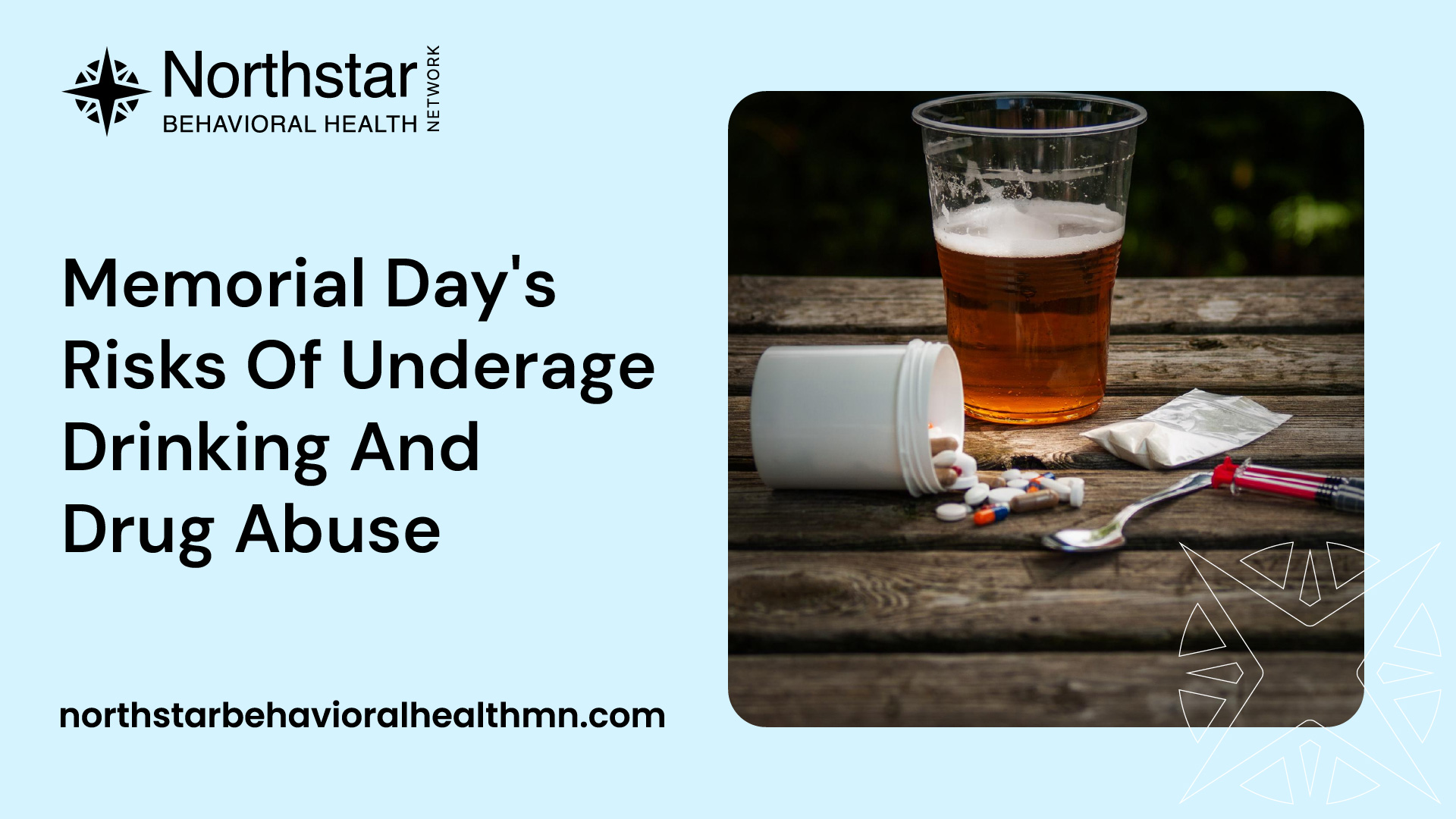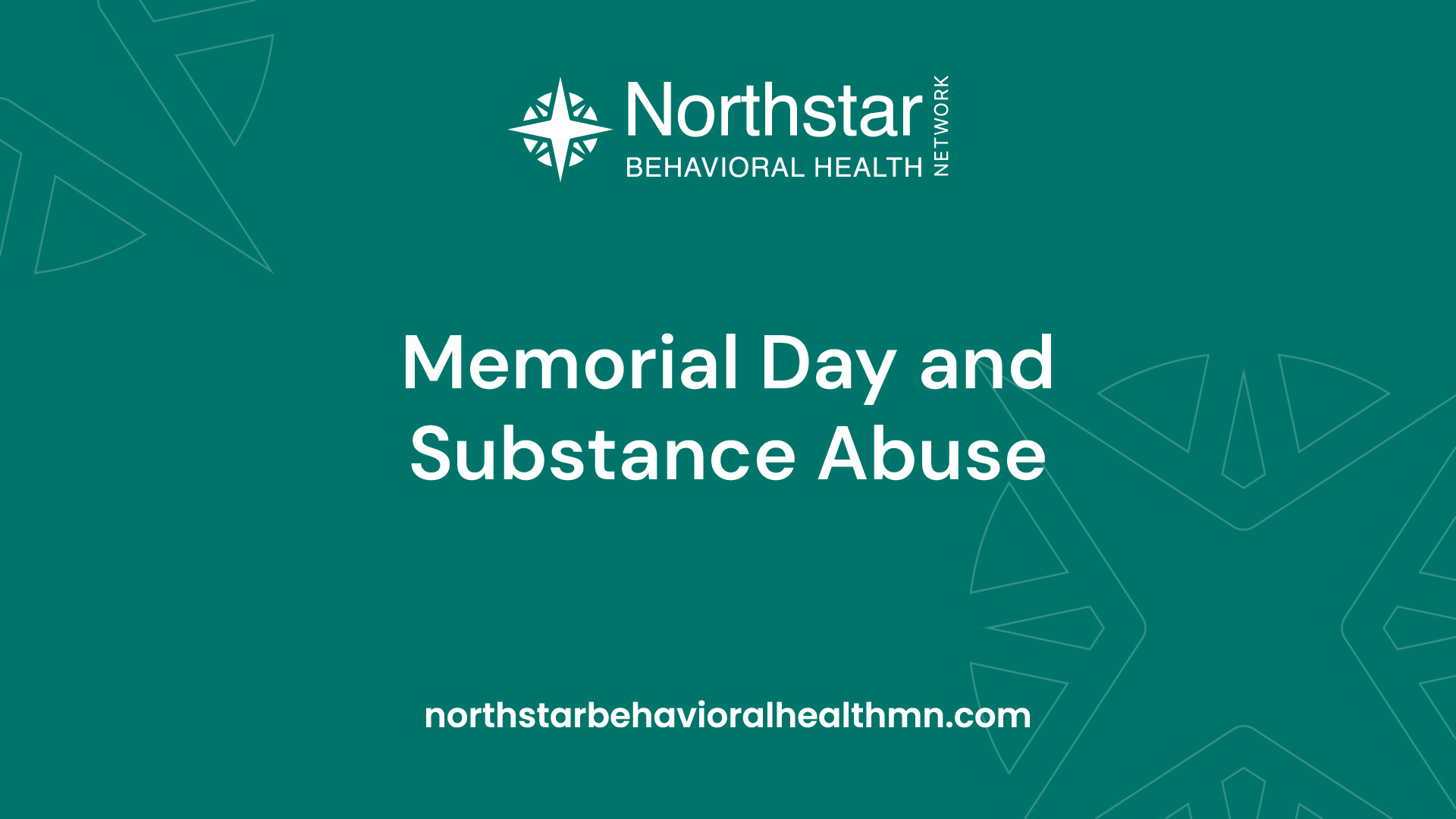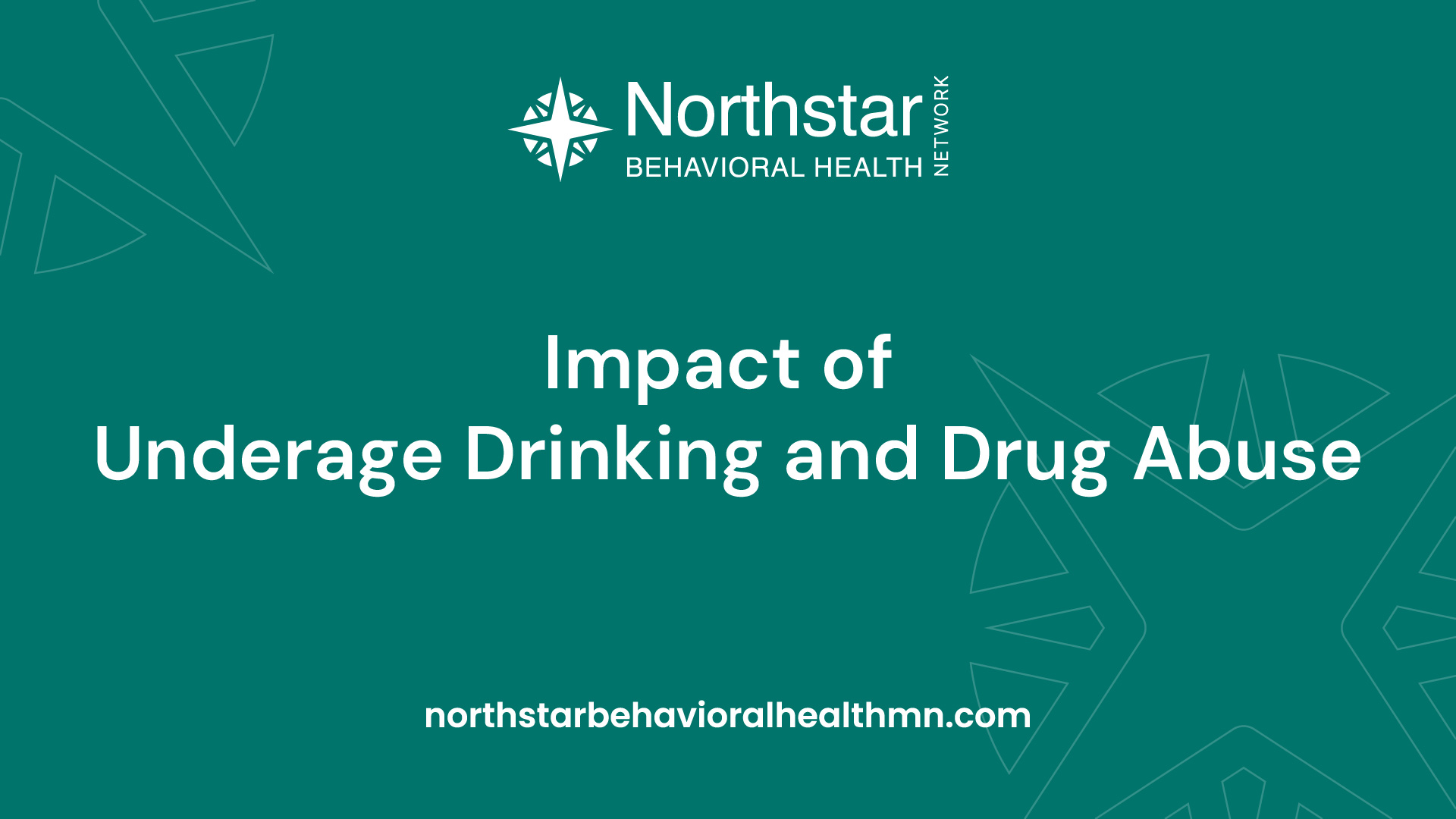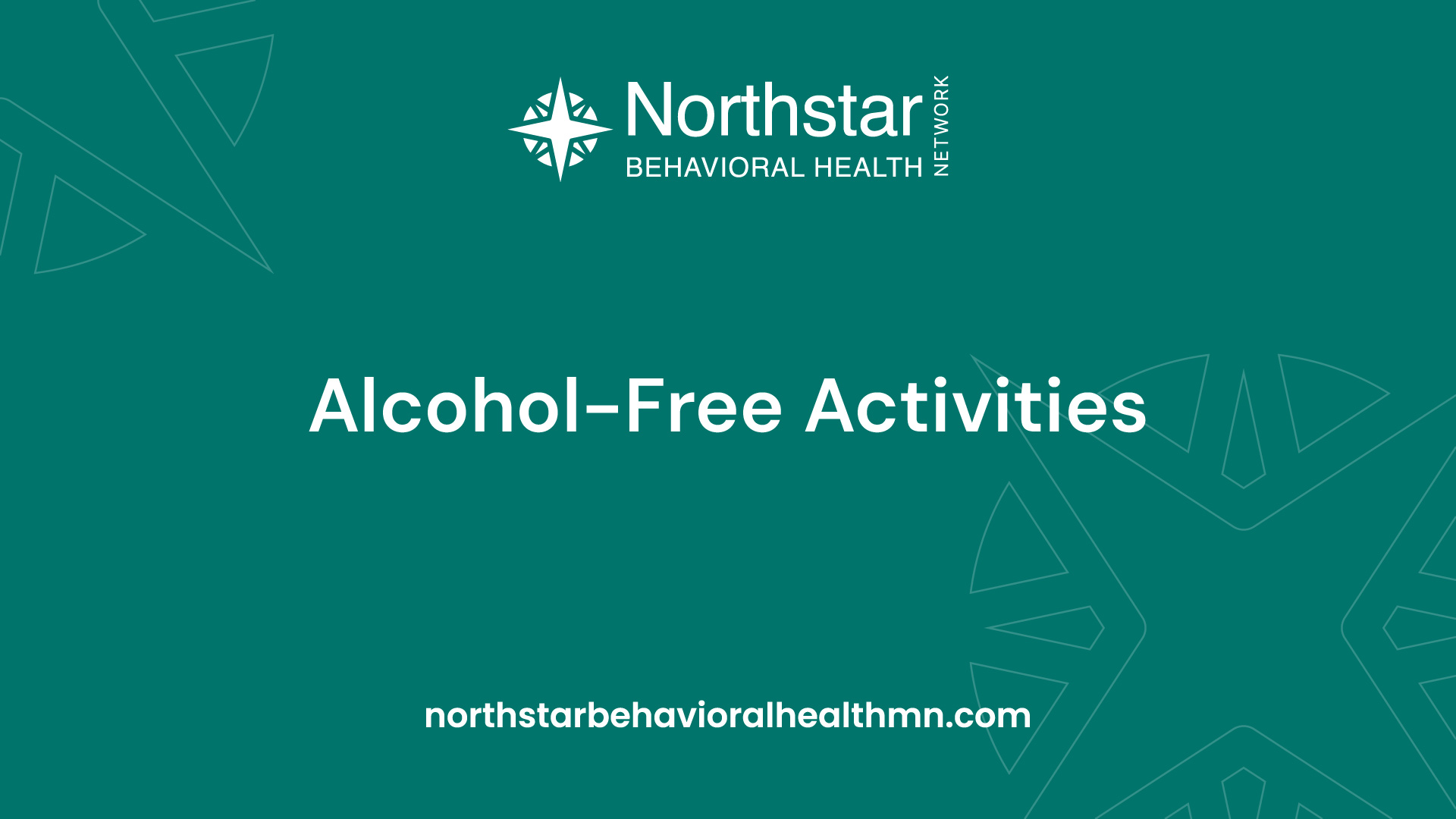August 27, 2024
Memorial Day's Risks Of Underage Drinking And Drug Abuse
Learn how to prevent underage drinking and drug abuse with our tips and resources.


Understanding the Risks
Memorial Day, often associated with celebrations and outdoor gatherings, unfortunately, also poses a high risk for underage drinking and drug abuse. It is important to understand the potential dangers and consequences that can arise during this holiday.
Memorial Day and Substance Abuse

Memorial Day weekend is a time when many individuals, including teenagers, may engage in social activities that involve alcohol and drugs. The combination of extended weekends, parties, and a relaxed atmosphere can contribute to the increased substance use and experimentation. It is crucial to be aware of these risks and take steps to prevent substance abuse during this time.
Impact of Underage Drinking and Drug Abuse

Underage drinking and drug abuse can have significant consequences on both physical and mental health. The following table highlights some of the potential impacts:
Understanding the risks associated with underage drinking and drug abuse during Memorial Day is crucial in order to take appropriate measures to ensure the safety and well-being of individuals, especially teenagers. By raising awareness and taking proactive steps, we can work towards creating a safer environment for everyone during this holiday.
If you suspect that someone you know is struggling with substance abuse or if you want more information on supporting a loved one in recovery, check out our article on five tips to support your loved one in recovery. Remember, early intervention and open communication are essential in helping individuals overcome these challenges.
Supporting Your Loved One
When it comes to supporting a loved one who is struggling with addiction, two key aspects are open communication and providing a safe environment. These elements play a crucial role in helping them on their journey to recovery.
Open Communication
Open and honest communication is essential when supporting someone in recovery. It's important to create a safe space where they feel comfortable expressing their thoughts and emotions. By actively listening without judgment, you can better understand their experiences and provide the support they need.
Here are some tips for fostering open communication:
- Be non-judgmental: Avoid criticizing or blaming them for their addiction. Instead, show empathy and understanding.
- Choose the right time: Find a suitable time when both of you are calm and relaxed to have conversations. Avoid discussing sensitive topics when tensions are high.
- Use "I" statements: When expressing concerns or sharing your feelings, use "I" statements to avoid sounding accusatory. For example, say, "I feel worried about your well-being" instead of "You always make bad choices."
- Ask open-ended questions: Encourage them to share their thoughts and feelings by asking open-ended questions. This allows for deeper conversations and understanding.
Remember, effective communication is a two-way street. While it's important to express your support and concerns, it's equally crucial to listen attentively to their perspective and respect their feelings.
Providing a Safe Environment
Creating a safe environment is vital for someone in recovery. This involves fostering a space that supports their sobriety and minimizes triggers or temptations that could lead to relapse. Here are some ways to provide a safe environment:
- Remove triggers: Identify and remove any substances or reminders of their past substance abuse from the living environment.
- Encourage healthy habits: Encourage activities that promote overall well-being, such as exercise, hobbies, and self-care practices.
- Establish boundaries: Set clear boundaries to ensure that both parties understand what is acceptable and what is not. This can help maintain a healthy and respectful relationship.
- Seek support: Connect with support groups and resources, both for yourself and your loved one. These communities can provide guidance, encouragement, and a sense of belonging.
By providing a safe and supportive environment, you can help your loved one navigate the challenges of recovery and reduce the likelihood of relapse. Remember, recovery is a lifelong journey, and your ongoing support and understanding are invaluable.
For more tips on supporting your loved one in recovery, check out our article on five tips to support your loved one in recovery.
Creating a Safe Celebration
When it comes to celebrating Memorial Day, creating a safe environment that discourages underage drinking and drug abuse is crucial. By providing alcohol-free activities and monitoring social interactions, you can help ensure a safer celebration for your loved ones.
Alcohol-Free Activities

One of the most effective ways to prevent underage drinking and drug abuse during Memorial Day celebrations is by offering alcohol-free activities. By providing alternative options, you can create an environment that encourages healthy choices and reduces the temptation to engage in risky behaviors.
Consider organizing or participating in activities that do not involve alcohol or drugs. Here are some ideas:
- Outdoor games and sports: Organize a friendly game of soccer, volleyball, or frisbee. This promotes physical activity and camaraderie without the need for substances.
- Arts and crafts: Set up a creative station where guests can engage in painting, drawing, or other artistic activities. This provides a positive outlet for self-expression and keeps individuals focused on productive and enjoyable tasks.
- Movie or game night: Plan a movie marathon or a board game session. This allows people to relax, have fun, and bond in a substance-free environment.
- Volunteer work: Dedicate part of the day to community service. Engaging in activities that contribute to the well-being of others can foster a sense of purpose and fulfillment.
By offering engaging and alcohol-free activities, you can help create an atmosphere that focuses on enjoyment, connection, and personal growth without the need for substances.
Monitoring Social Interactions
Another important aspect of creating a safe celebration is monitoring social interactions. By keeping an eye on the interactions between guests, you can identify potential risks and intervene if necessary.
Encourage open communication and foster an environment where guests feel comfortable sharing their concerns. If you notice any signs of potential substance abuse or risky behavior, address the issue promptly and offer support. Remember to approach the situation with empathy and understanding.
Here are some steps you can take to monitor social interactions and promote a safe environment:
- Observe behavior: Pay attention to any signs of excessive alcohol consumption or drug use. Look for changes in mood, behavior, or physical appearance that may indicate substance abuse.
- Encourage responsible drinking: If alcohol is being consumed, promote responsible drinking by providing non-alcoholic alternatives, encouraging hydration, and setting clear limits on the amount of alcohol consumed.
- Create a designated driver system: If guests are of legal drinking age and choose to consume alcohol, ensure that a designated driver or alternative transportation is readily available to prevent drunk driving.
Remember, it is important to be proactive and address any concerns regarding substance abuse. If you suspect that a loved one may be struggling with addiction, seek professional help. There are various counseling and therapy options, as well as support groups and resources available to assist individuals on their journey to recovery. For more information, refer to our article on seeking professional help.
By providing alcohol-free activities and monitoring social interactions, you can help ensure a safe and enjoyable Memorial Day celebration for everyone involved.
Offering Alternatives
When supporting a loved one in recovery from substance abuse, it's important to offer alternatives that promote healthy choices and provide support and understanding. By encouraging healthy choices and offering a supportive environment, you can help your loved one navigate through Memorial Day and other celebrations without succumbing to the temptations of alcohol and drugs.
Encouraging Healthy Choices
One way to support your loved one is by encouraging them to make healthy choices during Memorial Day celebrations. This can include engaging in activities that are alcohol-free and drug-free. By suggesting alternatives such as outdoor games, sports activities, or volunteering, you provide opportunities for your loved one to engage in positive and fulfilling experiences.
It's essential to communicate with your loved one and understand their interests and preferences. By involving them in the decision-making process and allowing them to contribute ideas, they will feel empowered and more likely to participate in the chosen activities. Remember, the goal is to create an enjoyable and memorable day without the need for substances.
Providing Support and Understanding
Support and understanding are key elements in helping your loved one on their journey to recovery. Show empathy and compassion by listening to their concerns, validating their emotions, and offering your assistance whenever needed. Let them know that you are there for them and that they can rely on your support.
During Memorial Day, it's important to be mindful of potential triggers that may arise. These triggers can include social pressure, seeing others consume alcohol or use drugs, or feeling left out. Be prepared to provide encouragement and reassurance during such moments. Remind your loved one of their progress and the positive changes they have made.
Additionally, consider attending events or gatherings with your loved one to provide a sense of security and accountability. By being present and actively participating, you can help create a supportive environment that discourages substance use.
Remember, every individual's recovery journey is unique, and what works for one person may not work for another. Communicate openly and honestly with your loved one to understand their needs and preferences. By offering alternatives and providing support and understanding, you can help make Memorial Day a safe and positive experience for your loved one in recovery.
For more tips on supporting your loved one in recovery, check out our article on five tips to support your loved one in recovery.
Seeking Professional Help
When supporting a loved one dealing with the challenges of substance abuse, it's important to recognize that professional help can play a vital role in their recovery journey. Seeking counseling, therapy, and participating in support groups can provide the necessary guidance and resources needed to overcome addiction. Here are two essential options for professional help:
Counseling and Therapy Options
Counseling and therapy sessions are powerful tools that can provide individuals with a safe and supportive environment to address their addiction and work towards recovery. There are different types of counseling and therapy options available, depending on individual needs and preferences. Some common approaches include:
- Individual Therapy: One-on-one sessions with a trained therapist who specializes in addiction can help your loved one explore the underlying causes of their substance abuse and develop coping strategies to overcome cravings and triggers.
- Group Therapy: Group therapy involves participating in sessions with others who are also on the path to recovery. This supportive setting allows individuals to share their experiences, learn from others, and develop a sense of community. Group therapy can be especially helpful in reducing feelings of isolation and building a strong support network.
- Family Therapy: Substance abuse affects not only the individual but also their loved ones. Family therapy can help improve communication, rebuild trust, and provide education on addiction and recovery. It offers an opportunity for family members to work together towards healing and supporting their loved one's recovery journey.
Support Groups and Resources
Support groups provide individuals with a space to connect with others who have similar experiences and understand the challenges of addiction. These groups offer valuable support, encouragement, and insights from peers who are also navigating the recovery process. Here are a few examples of support groups and resources that can be beneficial:
- 12-Step Programs: Twelve-step programs such as Alcoholics Anonymous (AA) and Narcotics Anonymous (NA) have proven to be effective in supporting recovery. These programs follow a structured approach and provide a supportive community to help individuals maintain sobriety.
- SMART Recovery: SMART Recovery is a science-based program that focuses on self-empowerment and self-reliance. It provides tools and techniques to help individuals manage cravings, cope with stress, and make positive lifestyle changes.
- Online Communities: Online communities and forums can offer a convenient and accessible way for individuals to connect with others in similar situations. These platforms provide a supportive environment where individuals can share their experiences, seek advice, and find inspiration.
Remember, professional help is a crucial component of the recovery process. Encourage your loved one to explore counseling, therapy options, and support groups to enhance their chances of overcoming addiction and maintaining long-term sobriety. For more information on how to support your loved one in recovery, check out our article on five tips to support your loved one in recovery.

.jpg)




.jpg)

